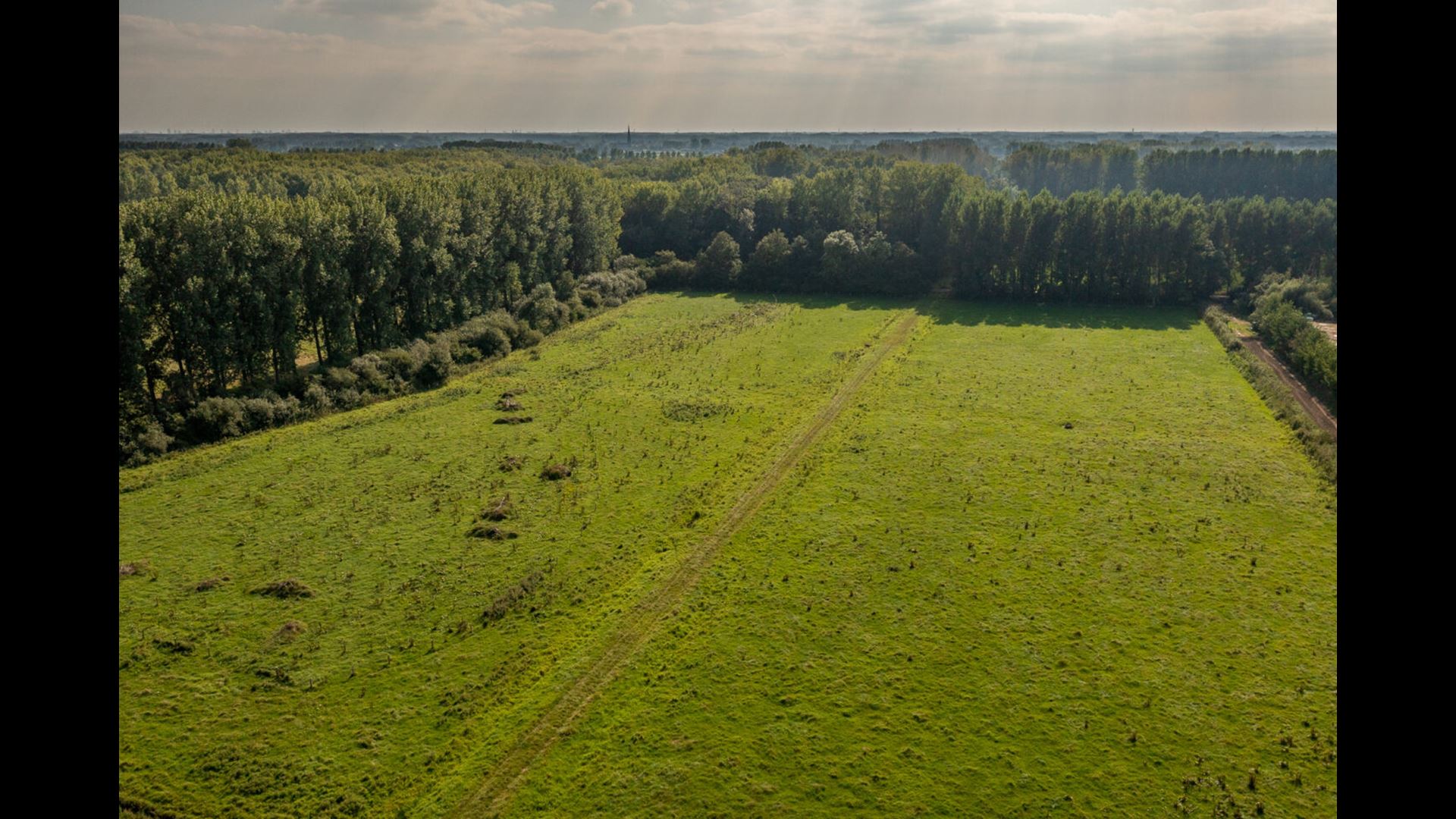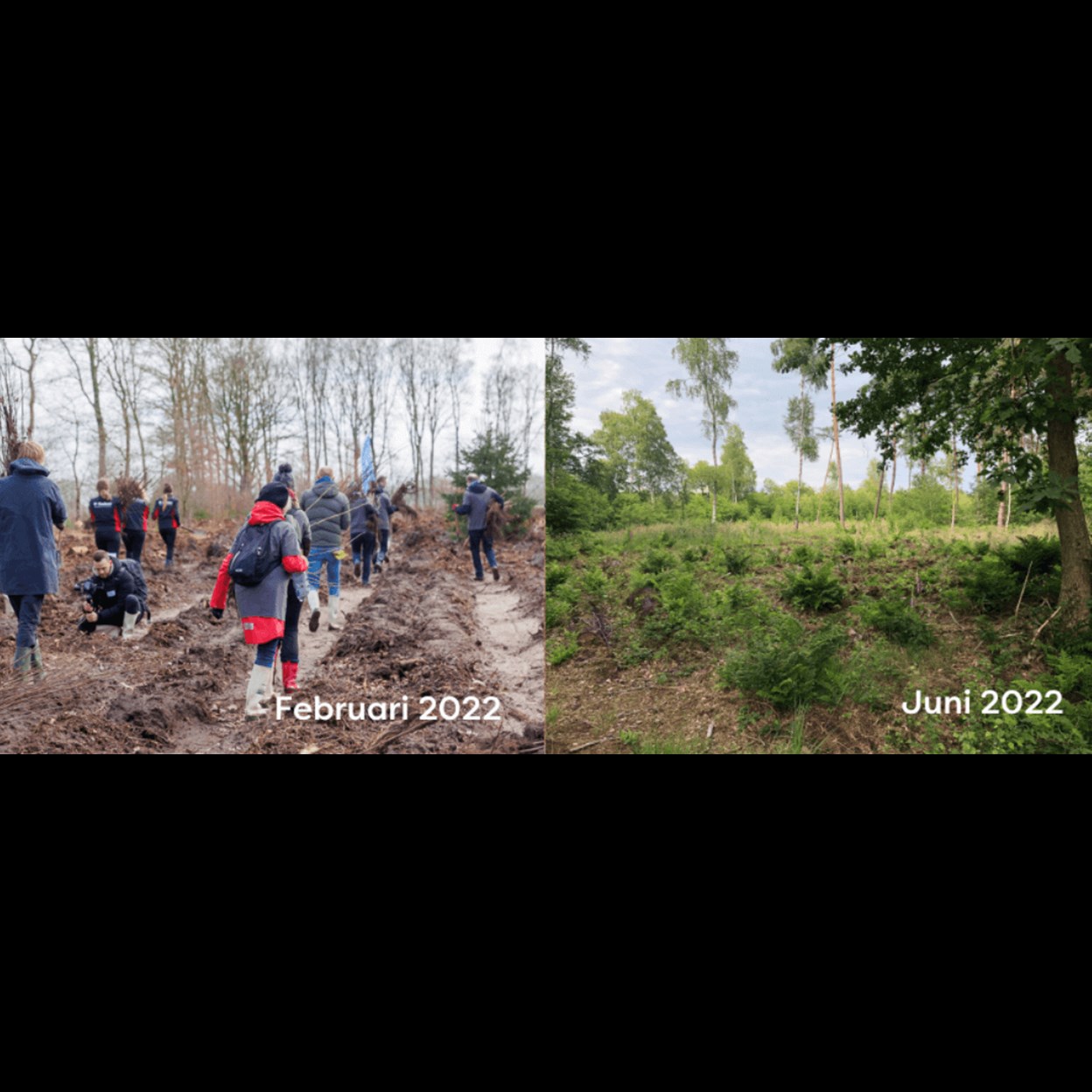A more beautiful world thanks to Zwitserleven and Trees for All
We want to contribute to a better, more beautiful world - for now and for later. That is why in 2020 we partnered with Trees for All, an organisation that has been working for 20 years to improve the climate, biodiversity and healthy living conditions.
Together with Trees for All, we planted the 'Zwitserleven forest' of some 2,000 trees in Het Groene Woud in the Dutch province of Noord-Brabant. We also donated 1,500 trees for a food forest on Lubosch Land in the province of Limburg. With much more on the horizon!
The 'Zwitserleven forest' in Het Groene Woud
Zwitserleven planted its own forest in November 2020 with the money made available by very small pensions that had lapsed. It involves 2,000 trees in the 'Zwitserleven forest' in Het Groene Woud in the province of Noord-Brabant. Het Groene Woud is a beautiful natural area in the heart of Noord-Brabant where you can experience the Zwitserleven Feeling for yourself.
In addition to the new tree species, existing populations of, for example, wood anemones and cuckoo flowers have also increased, as well as fungi developing in the dead wood. The fauna has not lagged behind, with populations of house and tree sparrows, song thrushes, wrens, robins and blackbirds also growing. This is obviously due to the different types of trees planted, but also because of the addition of dead wood and the absence of intensive human activities such as agriculture.
The food forest on Lubosch Land
In early 2022, Zwitserleven teamed up with Trees for All to plant 1,500 trees for a food forest in southern Limburg province. The food forest on Lubosch Land was conceived and set up by Geert Jan Nieboer and should contribute to more biodiversity and awareness of nature in the beautiful hills of southern Limburg. A wide variety of nuts, fruits, seeds, vegetables, herbs, spices and mushrooms, among others, are grown in the food forest. As much as possible, the harvest the food forest produces is sold directly and locally, and processed into various regional products with a longer shelf life.
The first plants and animals have also been spotted in Lubosch Land, such as birds like the kestrel, green woodpecker, rook, yellowhammer, black redstart and blackcap. But it's not just birds: field mice, badgers, deer, foxes, moles and various spiders, beetles, butterflies and insects are also flocking to the forest. In short, biodiversity is already coming to life here in a big way!
New forest in the province of Utrecht
During the winter of 2022-2023, Trees for All will plant new forests in the Netherlands together with the Forestry Commission and the Buitenfonds. One of the locations where they will plant trees is the village of Leersum in the province of Utrecht. Here, a total of 24,000 trees will go into the ground on former grasslands. These barren fields will thus be transformed in the coming years into a strong forest brimming with trees, shrubs, plants and animals. Moreover, the new forest stores CO2 and the trees provide clean air, oxygen, water and so much more for all of us. Zwitserleven will also provide a contribution to this forest in Leersum.
1-2-Tree
Every year, a net 10 billion trees disappear. The consequences for people, animals and the climate are disastrous. That is why Trees for All invest in trees, like in Noord-Brabant and Limburg on former agricultural land, currently only home to grass. Different types of trees have been and are being planted to increase biodiversity and lock carbon dioxide. For every tree that Zwitserleven donates to the forest project in the Netherlands, Trees for All also plants a tree in one of its projects abroad: the 1-2-Tree programme.


